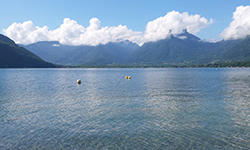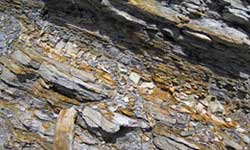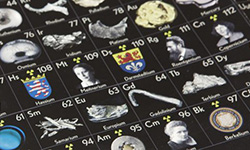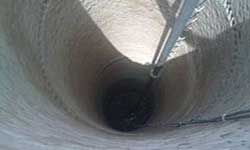Research disciplines
The Nuclear Waste Services RSO will build a multi-disciplinary capability across a number of UK university teams that have a world-class track record in geological disposal science and technology, fostering collaboration and synergies.
We will draw upon world-class research expertise in our key disciplines, including:
Advanced manufacturing

Theme lead: Professor Steve Jones
Advanced manufacturing research is intrinsic to building sustainable waste management systems and to securing the necessary societal and environmental investments. Research involves the development of cost-effective fabrication and construction technologies, and standardisation and automation that enhances product integrity and performance.
Applied mathematics

Theme lead: Professor Robert Zimmerman
Regulatory guidance requires a quantitative evaluation of the performance of the GDF during each of the transport, operational and post closure phases. The applied mathematics theme will explore the development and application of quantitative descriptions for the key features, effects and processes which impact the safety and operation of the GDF throughout its lifecycle. It will complement existing Nuclear Waste Services expertise in mathematical modelling and the quantification and management of uncertainties.
Environmental science

Theme lead: Professor David Copplestone
Delivery of the GDF will require appropriate environmental permits, environmental impact assessments, habitats assessments and sustainability appraisals. Environmental science research addresses the impact of the GDF on, and incorporation of disposed waste components in, the biogeochemical cycles which operate in the sub-surface and surface environments, across all relevant length and timescales to support these assessments.
Geoscience

Theme lead: Professor Kevin Taylor
Geoscientific understanding is essential for building confidence in the long-term safety of the geological disposal facility (GDF) and for quantifying and managing the inevitable uncertainties that arise over the timescales associated with geological disposal. Geoscience research involves integrated aspects of rock characterisation; hydrogeology, geochemical reactivity and modelling; geophysics; geomechanics and structural geology.
Geo-technical / engineered barriers

Theme lead: Dr Majid Sedighi
Geological barriers, engineered barriers, wasteforms and the interfaces between them are key components to any GDF safety case. The drilling of boreholes, shafts, tunnels and vaults all create voids, surrounded by Excavation Disturbed Zones, which must be sealed with barrier materials (e.g. cement and bentonite). Research to understand, and engineer, the spatial and temporal evolution of hydro-chemo-mechanical properties of each barrier material, as well as the transition zones and interfaces in-between, is crucial for understanding groundwater flow, saturation and long-term gas migration; a critical success factor in achieving the GDF’s safety case.
Materials science

Theme lead: Professor Ian Farnan
Materials science research underpins the safety case for radioactive waste disposal. It provides the basis for understanding the long-term behaviour of wastes and engineered barrier components within the GDF, to define the GDF source term. Research includes the evolution and interaction of the engineered near field components of the GDF, during the operational phase and following the sealing and closure of the facility. It covers the wasteform, container and buffer or backfill, addressing individual and coupled thermal, hydrological, mechanical and chemical processes.
Radiochemistry

Theme lead: Professor Andrew Cundy
Understanding the mobility of radionuclides under different conditions is an essential component of the GDF safety case. Radiochemistry research addresses the impact of chemical speciation on solubility and mobility of radionuclides and stable species, particularly on exchange between solid and fluid (solution and gas) phases through both experimental study and computational modelling.
Social science

Theme lead: Professor Penny Harvey
The siting, construction and operation of a geological disposal facility (GDF) will take many decades. The programme relies on the consent of a host community, and on wider public support. The social science theme will explore the social and socio-economic aspects of delivering the GDF programme – including key issues of community formation, social change, environmental protection, technological innovation, and inter-generational ethics. It will also explore how both traditional and digital media might shape how public trust and confidence can be developed and sustained over time.
Sub-surface engineering

Theme lead: Professor Rebecca Lunn
The GDF will be a significant underground construction project involving state-of-the-art research on rock mechanics, geophysics for rock mass characterisation, borehole construction/monitoring, mining and underground construction. Research will also require exploration in sustainability and maximising all aspects of underground space inclusive of infrastructure for transportation, utility systems, storage architecture and trenchless technologies. Research on state-of-the-art site investigation techniques and novel, adaptive underground construction methods, will be key to its success.
Training & Communication

Theme lead: Professor Scott Heath & Prof Adrian Bull
The GDF programme will require a secure supply of technical training across a wide range of disciplines. The Training Lead will coordinate training activities across the RSO portfolio, and integrate them into wider nuclear skills development activities.
Our people
Discover more about the project team and discipline leads that make up our Research Support Office members.
Contact us
We welcome opportunities to connect with the research community, industry and the general public.



